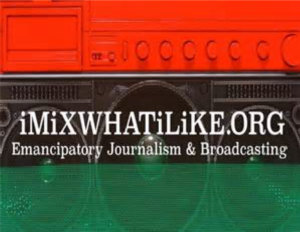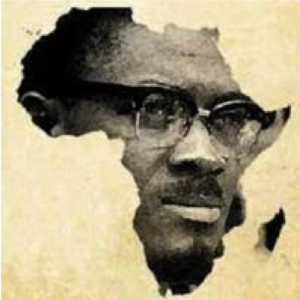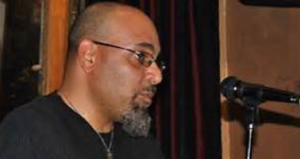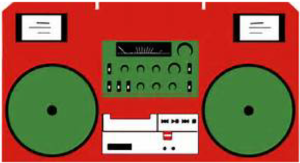 For this year’s Fourth of July observation (“celebration” would not be the appropriate word), we at KUUMBAReport Online are going to correct an oversight for which we have been responsible over the past several years. We have long been impressed by the intellect, commitment and Pan-Afrikan activism of Dr. Jared Ball, and his WPFW-FM Radio Show and his iMiXWHATiLiKE website (https://imixwhatilike.org/) have provided a service to people of Afrikan descent, as well as those who are committed to Truth and Justice, that cannot be overestimated. Earlier this year, we finally asked for permission to repost some of his commentaries and to link to his site. Below, we have reposted or linked to five commentaries on the Fourth of July, Black Buying Power, the Urban League’s State of Black America Report and, perhaps most importantly, the commemoration of the 92nd Birthday of Patrice Lumumba, the first elected President of the Democratic Republic of the Congo who was assassinated by Col. Joseph Mobutu and the US CIA on January 17, 1961, barely a year after his inauguration.
For this year’s Fourth of July observation (“celebration” would not be the appropriate word), we at KUUMBAReport Online are going to correct an oversight for which we have been responsible over the past several years. We have long been impressed by the intellect, commitment and Pan-Afrikan activism of Dr. Jared Ball, and his WPFW-FM Radio Show and his iMiXWHATiLiKE website (https://imixwhatilike.org/) have provided a service to people of Afrikan descent, as well as those who are committed to Truth and Justice, that cannot be overestimated. Earlier this year, we finally asked for permission to repost some of his commentaries and to link to his site. Below, we have reposted or linked to five commentaries on the Fourth of July, Black Buying Power, the Urban League’s State of Black America Report and, perhaps most importantly, the commemoration of the 92nd Birthday of Patrice Lumumba, the first elected President of the Democratic Republic of the Congo who was assassinated by Col. Joseph Mobutu and the US CIA on January 17, 1961, barely a year after his inauguration.
These are just five of the many analyses that can be found on the website https://imixwhatilike.org/.
Independence For Whom? Critical Responses from the Colony
 The Birth of Patrice Lumumba and the Assassination of a Free Africa
The Birth of Patrice Lumumba and the Assassination of a Free Africa
The Myth of Black Buying Power
myth – a widely held but false belief or idea.
Myth Basics:
- The claim that African America has roughly $1 trillion in “buying power” is popularly repeated mythology with no basis in sound economic logic or data. While the myth has a longer history it is today largely propelled by misreadings and poor (false) interpretations of Nielsen surveys and marketing reports produced by the Selig Center for Economic Growth at the Terry College of Business housed in the Bank of America Financial Center in Athens, GA.
- “Buying Power” is a marketing phrase that refers only to the “power” of consumers to purchase what are strictly available goods and is used as a measurement for corporations to better market their products. “Power” here has nothing to do with actual economic strength and there is no collective $1+ trillion that Black people have and just foolishly spend ignorantly to their economic detriment.
- The myth of “buying power” functions as propaganda working to deny the reality of structural, intentional and necessary economic inequality required to maintain society as it is, one that benefits an increasingly decreasing number of people. To do this the myth functions to falsely blame the poor for being poor. Poverty, the myth encourages, is the result of the poor having little to no “financial literacy”, or as resulting from their bad spending habits, when in reality poverty is an intended result of an economic and social system.
For the full analysis, visit the iMiXWHATiLiKE website, https://imixwhatilike.org/2017/04/28/the-myth-of-black-buying-power/
Assessing The Urban League’s State of Black America
Hear the rest of the show and find Puryear’s By Any Means Necessary archives HERE.
 The 4th of July, Hip-Hop and National “Inattentional Blindness”
The 4th of July, Hip-Hop and National “Inattentional Blindness”
Say what you want about the level of resistance to this country’s wonderfully constructed image and mythology, that which it creates about itself or those it holds in check; but hip-hop is a leading force in that fight. In fact, without hip-hop very little of the symbolism or artistic expression of radical resistance to the brutality this country can impose on its own would be known or felt. Without hip-hop so much of what I heard described recently as “inattentional blindness” would pass without recognition. So as another celebration of the 4th of July passes for some of us it is hip-hop that best represents in this moment the sickeningly still-relevant question of Frederick Douglass: “What, to the American slave, is your 4th of July?”
National Public Radio (NPR) again recently demonstrated that the real national pastime is not baseball, nor is it football. In fact, it is no game at all; it is the collective disavowal of racism’s origin, function and impact. White supremacy remains so powerfully unnamed in its relationship to power that its complete removal from even its most obvious displays is almost laughable. NPR’s story was the retelling of the 1995 case where Michael Cox, a Black Boston police officer, was mistaken for a criminal and viciously beaten by his White colleagues. But NPR’s focus was not the continuing cycle of police violence against Black people, no. In an almost ironic twist NPR’s focus was research into a condition known as “inattentional blindness” or the inability to see even the most shocking events around you due to intense focus on something else.
Instead of investigating the routine abuse of Black people by the police NPR chose to recast this story with a focus on the fact that one officer is said to have run right past a group of his fellow White cops beating a defenseless Black man without seeing a thing as a case of “inattentional blindness.” He was so keyed in on a subject he was chasing that he was momentarily incapable of seeing the beating. What makes the NPR piece nearly ironic is that were this story told by The Onion or had it once been a sketch on the Chappelle Show the humor in the framing of the story would be obvious. But it is indicative of the national need to have as its national pastime a national “inattentional blindness” to the ways in which its oppressed communities suffer.
The framing of this story by NPR is indicative of the national blindness to the treatment of its colonized inhabitants. It is the oft-described invisibility of Black suffering which is a political necessity to the stability of social order that demands non-sight of the unsightly, of the wretched. And it is often hip-hop, the maligned, misrepresented angry — yet poetic — responses that reminds the world of the fakery in the stars and stripes. Skipp Coon said, he’d “rather see it ablaze” than salute it. Killer Mike, a la Michelle Alexander, is reminding us that prisons are “new age slavery” and a la Malcolm X suggests we all get a “shotgun” and that, a la the misrepresented Magnificent one, says he will “burn this muthaf**ka down!”
And like Mike is Jasiri X denying the blindness by retelling the story of Jordan Miles, another of the more recent innocent victims of police violence; another national pastime to which Pharoahe Monch suggests the response be to Clap … and [he] don’t mean applause.” It is also the journalistic work in hip-hop, from DaveyD to FreeMix Radio where such artistry is reported in connection to the political activism that also seeks to deny the imposed blindness to as, Kwasi Seitu reports, the continued “coon hunting” by police in cities like the nation’s capital. No room for inattention here. In fact, quite the opposite.
As we go to press artists and activists are gathering in New York City to raise further protest to this past week’s police violence against people gathered at the Pete Rock/Smif-n-Wessun album release party. The press release for the event calls for the police to stop seeing hip-hop gatherings as “a crime waiting to happen.” But in the eyes of a country whose national pastime is the “inattentional blindness” to Black suffering gathering crowds of Black people are indeed potentially threatening criminal acts.

